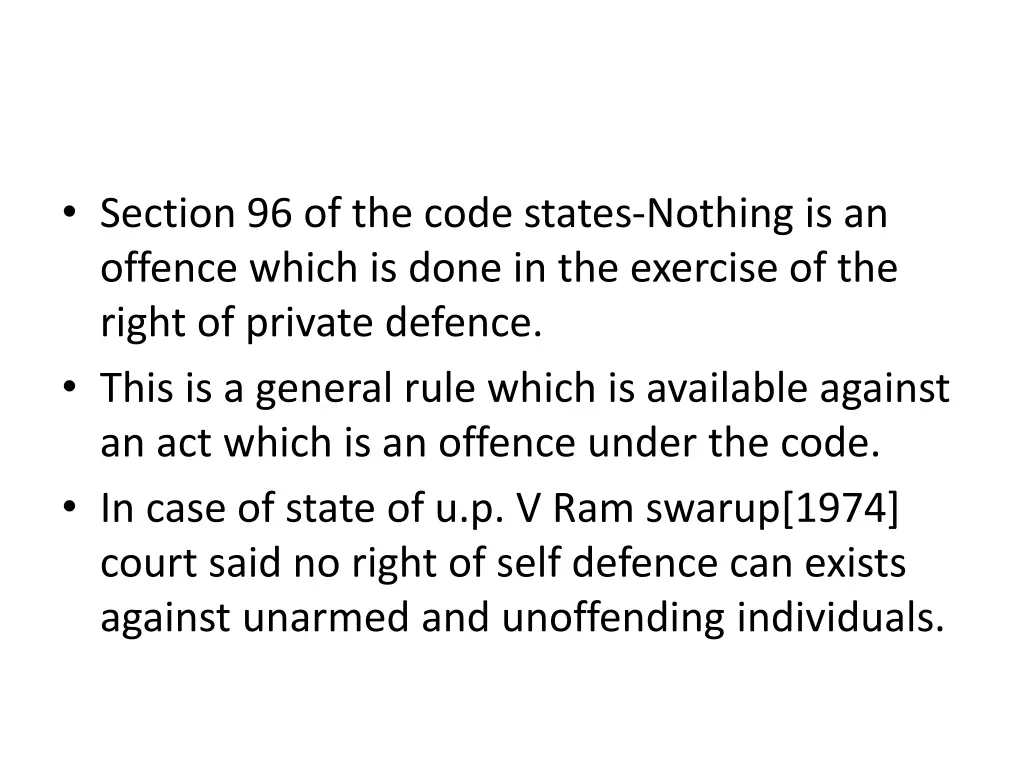
Private Defence Rights Under Indian Penal Code - Overview and Limitations
Understand the provisions of Section 96 to Section 99 of the Indian Penal Code regarding the right of private defence, including limitations and scenarios where this right can be exercised. Explore case examples and legal principles related to self-defence against aggressors, public servants, and more.
Download Presentation

Please find below an Image/Link to download the presentation.
The content on the website is provided AS IS for your information and personal use only. It may not be sold, licensed, or shared on other websites without obtaining consent from the author. If you encounter any issues during the download, it is possible that the publisher has removed the file from their server.
You are allowed to download the files provided on this website for personal or commercial use, subject to the condition that they are used lawfully. All files are the property of their respective owners.
The content on the website is provided AS IS for your information and personal use only. It may not be sold, licensed, or shared on other websites without obtaining consent from the author.
E N D
Presentation Transcript
Section 96 of the code states-Nothing is an offence which is done in the exercise of the right of private defence. This is a general rule which is available against an act which is an offence under the code. In case of state of u.p. V Ram swarup[1974] court said no right of self defence can exists against unarmed and unoffending individuals.
In case of Dwarka prasad V. State of U.P.-when there is free fights between the parties this defence is not available. According to section 97-this right is available to protect one s body and property as well as the body and property of another. This right is not absolute but subject to limits prescribed in section 99 of the code.
Section 98 provides that age, physical or mental capacity of the aggressor is no bar to the exercise of private defence. This right can be exercised even against an infant, the insane, an intoxicated person or one suffering under misconception of facts. Example of section 98[a] is relevent here. Section 99 explains the limits,according to this section[you can note down the bare language from the bare act]
If we read section 99 with its given explanations it become clear that the person is deprived of the of private defence against a public servant if;(a)the act done in good faith,(b) the act was done under the colour of office, and(c) there were reasonable grounds to established the identity or authority of public servant or any person acting under the authority or direction of a public servant. However, the right of self defence can be exercised;(1)when the public servant does not act in good faith,(2)when the public servant reasonably causes apprehension of grievous hurt,and(3)when the person exercising the right does not know or have reason to belive that aggressor is a public servant or one acting under the authority or direction of public seevant.
Provisions of Indian penal code related to rights of private defence
